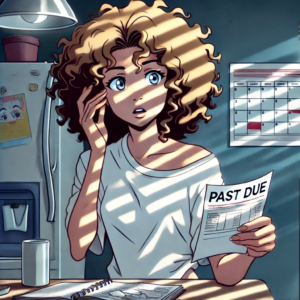
Overcoming Task Paralysis: How to Kick Start Your Productivity
Let’s face it: we’ve all been there. You sit down with every intention of tackling your to-do list, only to find yourself staring blankly at your screen, scrolling through social media, or wondering if that one sock you lost in the laundry will ever come back. Welcome to the club of task paralysis! As someone who’s experienced it firsthand—especially during school and at work—I can tell you, it’s like being stuck in quicksand, with your own self-imposed perfectionism dragging you down.
What is Task Paralysis?
So, what exactly is task paralysis? It’s that frustrating feeling when you freeze up at the thought of starting a task. For neurodivergent folks, it can be even more pronounced. You might feel overwhelmed by the pressure of multiple deadlines, unsure of where to begin. The irony? The more you think about it, the harder it becomes to actually do anything!
The Vicious Cycle
Imagine this: you’ve got a project due tomorrow, but instead of diving in, you binge-watch your favorite show (for the fifth time). This cycle of inaction can lead to stress, guilt, and even more paralysis. It’s like being stuck in a Netflix loop, but instead of drama, you’re living a productivity nightmare.
Strategies to Break Free
But don’t worry! There are plenty of ways to break this cycle and reclaim your productivity. Here are some researched-backed strategies to help you kick task paralysis to the curb:
- The Two-Minute Rule: If a task takes less than two minutes, just do it! Don’t let small tasks pile up like laundry you keep meaning to fold.
- Pomodoro Technique: Work for 25 minutes and then take a 5-minute break. It’s like giving yourself a reward for actually doing something!
- Break Tasks into Tiny Steps: If a task feels overwhelming, break it down. Instead of “write a paper,” think “open the document” or “write the first sentence.” Each step is a win!
- Set Clear Deadlines: Sometimes, the threat of deadlines can give you the kick in the pants you need. Set mini-deadlines to keep yourself accountable.
- Exercise for Dopamine: Get moving! A brisk walk or some stretching can boost your mood and energy, making it easier to tackle tasks.
Why This Matters
Breaking free from task paralysis isn’t just about getting things done; it’s about reclaiming your mental space. For neurodivergent individuals, learning to manage task initiation can lead to greater self-efficacy and reduced anxiety. Plus, who doesn’t want to stop feeling like a deer in headlights every time a deadline approaches?
Final Thoughts
So next time you find yourself staring at a blank page or a laundry pile, remember: it’s okay to struggle. We’ve all been there. Try these strategies, find what works for you, and reclaim your productivity! With a bit of humor and a few practical tips, you can turn task paralysis into task mastery.







